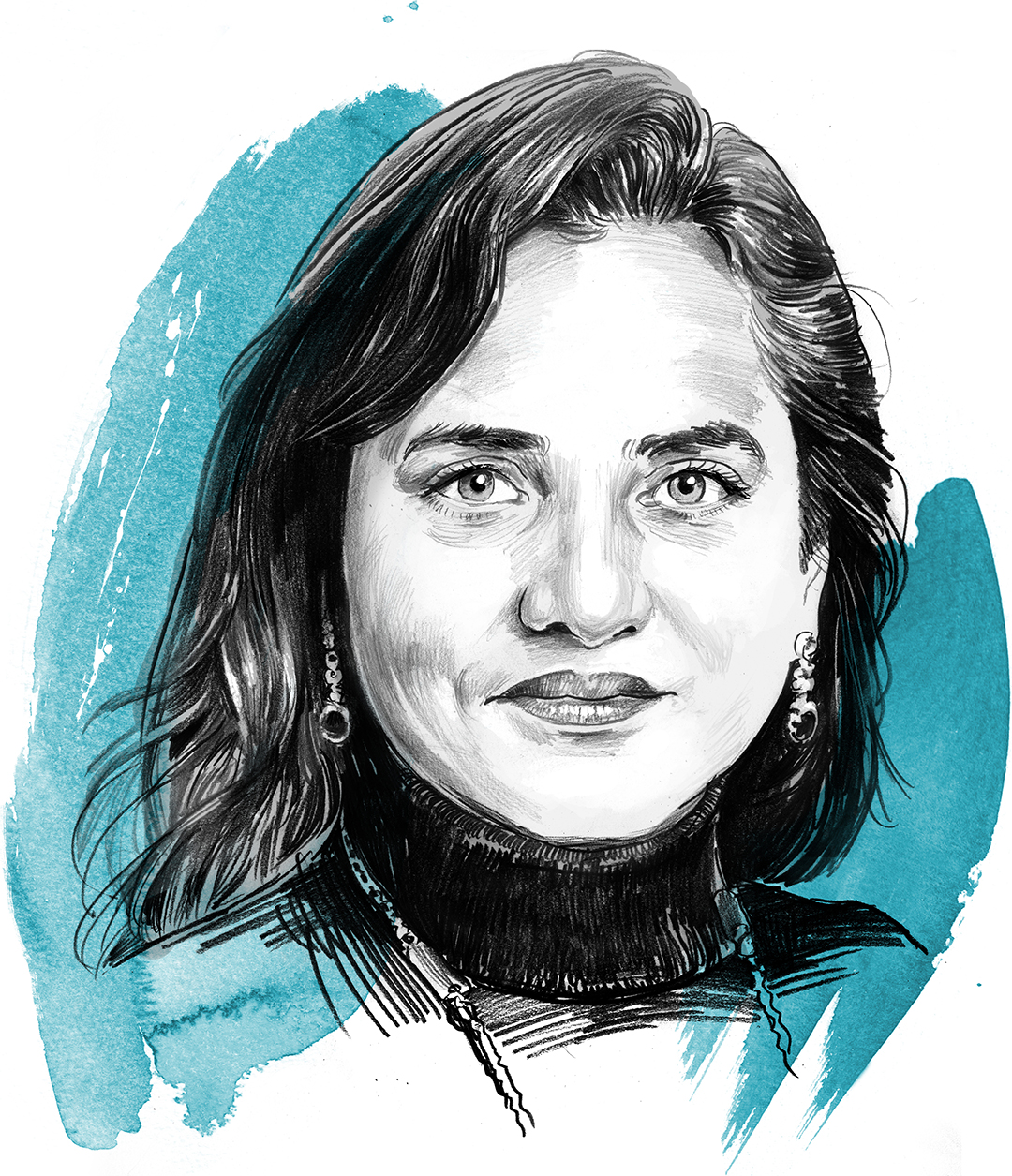The network brings together refugee women and LBTIQ+ individuals from around the world who are themselves active in leadership roles – for example, as founders of local initiatives. It is an instrument of the German Development Ministry (BMZ) to promote political participation and is coordinated by GIZ. Its goal is to integrate the voices of people from contexts of displacement and migration directly into political processes. The network works closely with a fund for women's rights organisations in crisis regions and supports their work by providing expertise in the selection of countries, projects and mentoring for the organisations. By the end of 2024, it had supported 144 projects in 11 countries, including Nigeria, Syria, the Palestinian territories, Iraq, Colombia, Bangladesh, Moldova and Ukraine.
‘We need a seat at the table – not next to it’
Anila Noor is the spokesperson of a network for refugee women and LBTIQ+ individuals. With GIZ support, the network empowers women who have been forcibly displaced to connect with each other and shape political processes directly.

Why should refugees be political actors – and not just recipients of aid?
Because we know best what we need. ‘Refugee’ is a legal status – it helps you be safe. But behind it, there are stories, identities, needs. I’m a woman who has been displaced. I know what I need – dependent on my gender, my health, my identity, my environment. When we, as refugees, have a seat at the table in policy and lawmaking, we can help shape political processes. We advocate for co-design, not symbolic inclusion. I always say: if we, the people who are affected, can define what the problem is – and we can – then half of the problem is already solved.
The Action Network on Forced Displacement – Women as Agents of Change
‘What we’re building with the network is truly unique. GIZ is playing a vital role in that.’
Why is there a need for an action network for forcibly displaced women, and what is GIZ’s role in it?
For me, the Action Network is the best example of solidarity. What we are building is very unique. I always feel proud of this. GIZ is playing a key role – as our secretariat. They organise meetings, invite partners, co-create safe spaces, and they listen. Really listen. They don’t question and say, ‘We know what’s best.’ They say, ‘Let’s see, let’s explore.’ That flexibility and openness help us to keep adjusting our activities to our actual needs. We are not only talking, we are walking the talk.
How does media visibility affect the situation of refugees?
Since 2015, I’ve followed how refugees are portrayed in the media – and it’s very conservative, bizarre, horrifying. They show the same images: women crying in boats, children in misery. That can lead to a distorted perception. I am more than my status. I am not only a refugee – I am also a leader. When you say ‘refugee woman’, people don’t imagine strength or competence. That’s what we want to change. Being a refugee is a legal status – it says nothing about my personality or my potential. That’s what we want to make self-evident.
Anila Noor
Anila Noor is the founder of New Women Connectors, a Europe-wide platform led by and for refugee and migrant women. She lives in the Netherlands and came to Europe as a refugee from Kashmir, Pakistan, seeking political asylum. As spokesperson of the Action Network (2024–2025), Noor combines personal experience with political activism. She aims to ensure that displaced women are recognised not just as affected individuals, but as experts and decision-makers in their own right. Her focus is on gender justice, inclusion and overcoming structural inequalities.